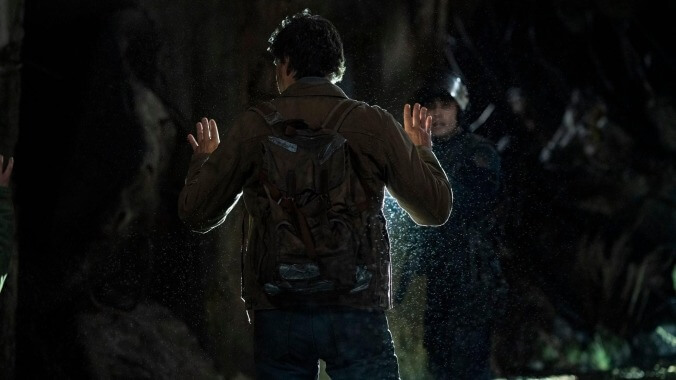Should you play The Last Of Us before watching the HBO show? Or vice versa?
There’s a short answer and a long one to the question of which version of The Last Of Us you should experience first, depending on your personal taste

Viewers who got their first taste of The Last Of Us during the series premiere on HBO this past Sunday night discovered what the game’s players have known for years—a good story told well can translate into any medium. We’re used to seeing prestige adaptations of novels, even comic books, but there’s never really been a show based on a video game that’s felt so—for lack of a better word—elevated. As with any adaptation, it’s worth asking the question: “Do I need to be familiar with the source material to fully appreciate the show?”
The short answer, in this case, is no, you don’t. The Last Of Us works as a TV series on its own merit, without any prior knowledge of the game. It has a clear narrative arc, compelling characters, thoughtful worldbuilding, and striking visuals that stick with you. The game has all of that too, and under the supervision of co-showrunner Neil Druckmann, the writer and creative director of the game, it hews pretty closely to the original’s acclaimed storytelling. You could sit down and watch all nine episodes of the HBO series and never feel like you’re missing out on anything from the game.
There’s a more nuanced answer to the question, though. It depends on how you prefer to consume this kind of content. Are you the type of person who likes to be immersed in a world, or would you rather just turn off your brain and enjoy it without an added layer of significance? Do you tend to get lost in the details? Do you get FOMO from shout-outs and Easter eggs aimed at fans with knowledge of the lore? Are you a serious gamer or are you more like HBO CEO Casey Bloys, who admitted in a now-infamous interview with The Hollywood Reporter that the last video game he played was Smurf: Rescue In Gargamel’s Castle on ColecoVision? Each viewer will have to answer those questions for themselves.
One story, two different ways to experience it
If you’re a gamer who somehow missed out on the first 2013 release or the many subsequent re-releases and remasters since then, The Last of Us is an easy recommendation. You should definitely get on that, but maybe not right away. Playing the game will essentially spoil the entire first season of the show for you. Sure, that goes both ways, but there may be more value added if you watch the show first and then go back and play the game. While there have been some changes made for the series, they’re not major or particularly consequential to the overall story. The series gives you the full narrative from the game pretty much intact, with some references but few surprises. The game, on the other hand, lets you sink deeper into the story with interactive elements like fighting, puzzle solving, crafting, and scavenging.
One of the features that sets the game apart is its vast trove of artifacts and collectibles scattered throughout the various locations you visit. Some are hidden in out-of-the-way places, others are just sitting out in the open, but they all add some depth to the world. You might come across a map, an informational pamphlet, a page from a diary, a revealing checklist, the code to a safe, or a hand-written note from a long-gone survivor to a loved one. There’s a series of comic books to collect for Ellie, and Firefly pendants with names and serial numbers (and sometimes bullet holes). Each item gives you a glimpse into the lives of people you may never meet in the game. Finding them is like a mini-game within the game, a story within a story. It’s something that can’t really be replicated on television. We’re not saying that the HBO adaptation doesn’t add anything to the story of The Last Of Us, it’s just that the game adds so much more.
Another thing you won’t get from the show, obviously, is interactive combat. There’s plenty of it in the game. There’s also a lot of sneaking around, ducking behind objects, and throwing bottles and bricks to distract the bad guys (human and otherwise). It’s often left up to you whether you want to go the stealth route or the violence route (though some violence can’t be avoided). Those choices give you the feeling of control, like you’re writing the story as you go along. That feeling only increases as you find new, more powerful weapons and improve them through the crafting system. It’s a bit of an illusion, as your path through the game is pre-determined and you have limited options if you want to progress, but it’s still a unique experience that isn’t ruined by knowing where you’re headed.
If none of this sounds appealing to you, it’s perfectly fine to watch the show and leave it at that. Mazin and Druckmann have taken that into account and nothing important is left out. The level of detail in the plot and setting is about what you’d expect for a prestige show, and it helps that they had a strong foundation to build upon. Either way, you’re in for a satisfying viewing experience.